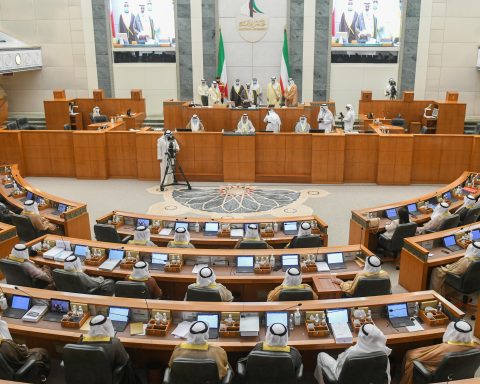Kuwait’s Finance Ministry issued a statement regarding the economic outlook of the Gulf country in the last fiscal year that ended on March 31. According to the statement, Kuwait’s budget deficit hit record by increasing 174.8 percent in the 2020-2021 year, reaching 10 billion dinars (approximately $36 billion).
The ministry statement noted that government revenues decreased by 38.9 percent to 10.5 billion dinars, while expenditures rose to 21.3 million dinars with a 0.7 percent increase.
The oil-rich Gulf country has been going through one of the worst economic crises in the country’s history, boosted by the economic repercussions of the COVID-19 pandemic and sharp decrease in oil prices. According to official statistics, the country’s oil income dropped around 43 percent in 2020-2021 to 8.8 billion dinars, while the decline in revenues in other sectors materialized as 6.5 percent to 1.7 billion. In Kuwait, wages and subsidies constituted 73 percent of overall spending, while spending for capital and infrastructure accounted for 9 percent.
Stating that Kuwait produced an average of 2.5 million barrels per day of oil in 2020-21, the Ministry revealed that the average crude selling price was $42.36 per barrel. In the statement, Finance Minister Khalifa Hamada said, “the deficit is attributed to the sharp decline in oil prices and minimal government operations as a result of the COVID-19 pandemic.”
“The cabinet is prepared to discuss the closing accounts with the parliament and to move forward in implementing real, effective, and sustainable solutions to the challenges facing public finances,” the minister added.
In Kuwait, to be legally valid, closing accounts must be approved by the country’s parliament.
Earlier this year, the Kuwaiti Minister warned that an increase in oil incomes derived from higher oil prices is not enough to compensate the Gulf country’s budget obligations, and an oil price of $90 per barrel would be needed to balance the budget.
Projected 23.05 billion dinars in expenditure and a deficit of 12.1 billion dinars, the 2021-2022 state budget proposed by the government in January was approved by the Kuwaiti parliament in June, following a long-lasting disagreement between the government and parliament, which caused a delay in reforms.














